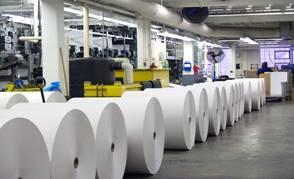Application
Paint Industry
Talc is an ideal multi-functional pigment, filler and extender in water borne, solvent borne and powder-coat based architectural and industrial paints, where they improve mechanical properties, optical properties and production processes. They also bring benefits to color concentrates, enamels, varnishes, gel coats, inks, putties, body fillers, mortars and asphalts.
Paper Industry
Our Talc is highly lamellar and soft having 1 on the Mohs hardness scale. This natural property provides a series of benefits in papermaking and recommended to use as filler and pitch control.
Plastic Industry
Talc is excellent reinforcing filler in polypropylene and engineering thermoplastics for automotive parts, domestic appliances, E&E components and food packaging. They are used for anti-blocking in polyethylene, restore mechanical properties to recycled plastics and are ideal nucleating agents in biopolymers and semi-crystalline polymers.
Soap & Detergent Industry
Our Material is cost-effective filler in soaps and Detergent syndets to provide a creamier lather, improve foaming, give a soft and silky skin feel; Seema Associates is substitute to expensive base oils, which helps manufacturers to cut final product costs
Cosmetic Industry
Soft to the touch and chemically inert, talc has been used as a body powder and is an ideal carrier for perfumes. Our Talc provides the silkiness in blushers and eye shadows, the transparency of foundations and the sheen of powder compacts.
Ceramics and Engineered Stone
Talc can be used in the manufacturing of ceramic products such as bathroom fixtures, ceramic tiles, pottery and dinnerware. When used as a filler in ceramics, talc can improve the firing characteristics of the greenware and the strength of the finished product. Being used as a flux agent for glaze with low iron content, reduces the melting point of ceramic glazes and improves their verifications. When used as a flux agent for ceramic by reducing the process temperature and the firing time,. talc reduces the processing costs.





